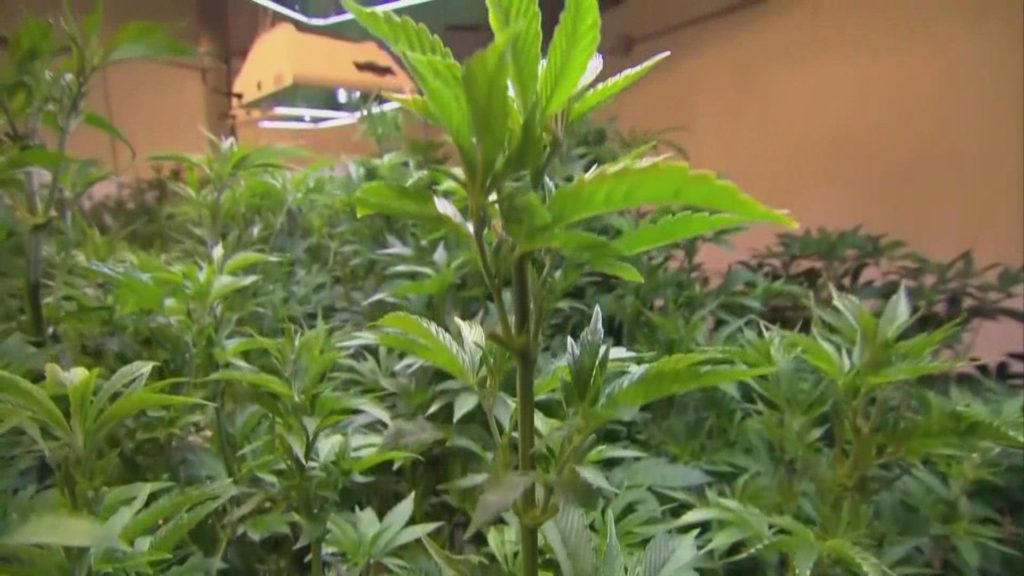MAINE, Maine — Medical marijuana caregivers are pushing back against being required to obtain a tobacco license to continue selling their products to patients.
The Office of Cannabis Policy said products, including rolling papers, used to ingest or smoke cannabis are also used to consume tobacco and fall under state law.
Caregivers said the requirements will limit options for sick patients and even put some small growers out of business.
11-year old Kaylee Brown has Dravet Syndrome, a rare and severe form of epilepsy that is resistant to most medications. For 9 years, medical marijuana has greatly reduced her seizures, and her mom Samantha is working to make sure it stays that way.
“Her life depends on it, and I am going to fight and make it right. And I am not going away,” Brown said.
Brown joined more than a dozen patients and medical cannabis caregivers in protesting against being required to get a tobacco license in order to sell some of their products.
“They are overregulating our caregivers and our choices out of businesses. We are not going to have any place to go except for the places the government wants us to go,” Brown added.
Last month, OCP sent out this updated guidance to caregivers, stating that products such as rolling papers and pipes used to consume cannabis are also used to consume tobacco and require a tobacco license under state law. In order to get that license — caregivers must have a physical storefront.
The Maine Cannabis Coalitions and other organizations said there are about 3,000 caregivers in the state, and the majority operate out of their homes or small farms, like caregiver Amy McFarland.
She believes caregivers are exempt under current medical cannabis law but worries that they could be forced out of the marketplace.
“They favor corporate interests, the larger dispensaries, and those who want to come here and capitalize on our rec market,” Amy McFarland, a medical cannabis caregiver, said.
Sharon Huntley, director of communications for the Department of Administrative and Financial Services, which oversees OCP, released a statement:
“The guidance memo distributed on Oct. 7 by the Office of Cannabis Policy does not in any way change policy, enforcement, or interpretation of current state law. The purpose of the Oct. 7 memo was to clarify the current state law for registrants and licensees who had questioned how to interpret the law for their business practice. Tobacco products are defined in Title 22, Section 1551, which became law in 2017 as part of Maine’s Tobacco 21 law. Products used in the consumption of cannabis are also used in the consumption of tobacco, and it has been true since the passage of PL 2017, c. 308 that they fall under the statutory definition of tobacco products, Huntley said.
“Regarding the sale of tobacco products, current law requires anyone engaged in the sale of tobacco products within the state of Maine to possess a Retail Tobacco Sales License, which is issued by the Department of Health and Human Services. As a requirement for obtaining a Retail Tobacco Sales License, you must maintain a physical storefront. In addition, the laws applicable to Retail Tobacco Sales licensees prohibit the sale and delivery of tobacco products to persons under 21. Tobacco policy enforcement is conducted by the Attorney General’s office.
In response to ongoing questions from some cannabis program registrants and licensees about the application of tobacco laws to their business activities, the Office of Cannabis Policy worked with the attorney general’s office and the Department of Health and Human Services to issue a memo, released on Oct. 7, outlining current state law for registrants and licensees. As I stated earlier, this memo did not change policy, enforcement, or interpretation of current state law. The Office of Cannabis Policy has been working with lawmakers and stakeholders across the cannabis industry since the last legislative session to address this confusion surrounding current state law and will continue to do so in the coming months.”



